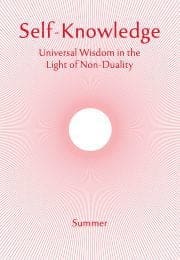Lift Yourself by Yourself
Most people value experiences that uplift the mind and make it feel better. To feel better is a vague and relative expression, so let us briefly identify some of its more worthwhile manifestations. These might include a feeling of lightness, where we are uplifted out of our worries. We may enjoy a sense of expansion where we forget the restrictions and limitations of life. Even more potent and personal might be an experience of bliss. Or, less intense but deeply gratifying, may be simply a general sense of well-being. Such experiences as these are usually associated with some pleasurable form of contact with the outer world, not least from the human relationships formed within that world. But the possibility of upliftment is not limited to contact with the sense objects; it may arise spontaneously, as it were, from the depth of our own being.
Regardless of the means involved, few would deny that the human heart has a natural propensity towards what is pleasurable, and gives its time and thought-force to maximising the experiences that promise delight. It is as if we had a right to happiness and that it is unfair and unnatural when we are deprived of opportunities.
The non-dual teachings confirm that this thirst for joy is a genuine aspect of our deeper nature and it is not something we should be ashamed of because it makes us feel selfish. But we do need to be selective in our choice of joy and seek what is best and most conducive to further progress in our course of self-upliftment. There are joys which are dependent on outer supports and are accompanied by anxiety and fear of loss. There are also joys which help us to realise a calm independence.
Here is a parable which acknowledges our need for conventional pleasures, but shows how our desires may blind us to higher forms of happiness within our reach. A lady once served as a cleaner for a Princess. Now and again the Princess would unknowingly drop a pearl from her jewellery. The cleaner would find it and think ‘O well, she doesn’t miss it’ and would take it home. After a while she had a collection of these scattered pearls. When her son came to visit her after a long absence, she showed him the pearls and told him how she had acquired them. He commented: ‘If these beautiful pearls fell from that Princess, how much more beautiful must be their owner.’
The parable urges us not to be satisfied with the limited joys of the world, but to give our adoration to their owner, the supreme power within, who is the real source of all satisfaction. We are made for a higher mode of life that includes as its fruit permanent joy. This is our destiny. Its promise is joy in life and at the same time joy that transcends life and its changes.
To enter this higher life, there has to be a preparation. The mind has to be weaned from its habit of almost continuous activity, generally unplanned (and hence unpredictable). In contrast it needs to work with a higher plan leading to enlightenment. Our training is therefore chiefly of the mind, and its refinement is brought about by focusing on thoughts based on the higher wisdom, and practice in suppressing the random and undirected mental activity. In this way we tutor our mind in the art of inner peace, which is the ideal condition in which is revealed the freedom of our higher nature. Then we shall have the unmatched benefit of a stable and progressive form of inner upliftment.
The seed of true upliftment and peace is within us. It is not something material or even psychological, but relates to that transcendent ground of our being that is our true Self. It will reveal itself within us to the extent that we foster goodwill and an empathy that excludes none.
Subscribe or enrol for free guest access to read all of this article and Self-Knowledge online.
Already subscribed or enrolled? Log in:


